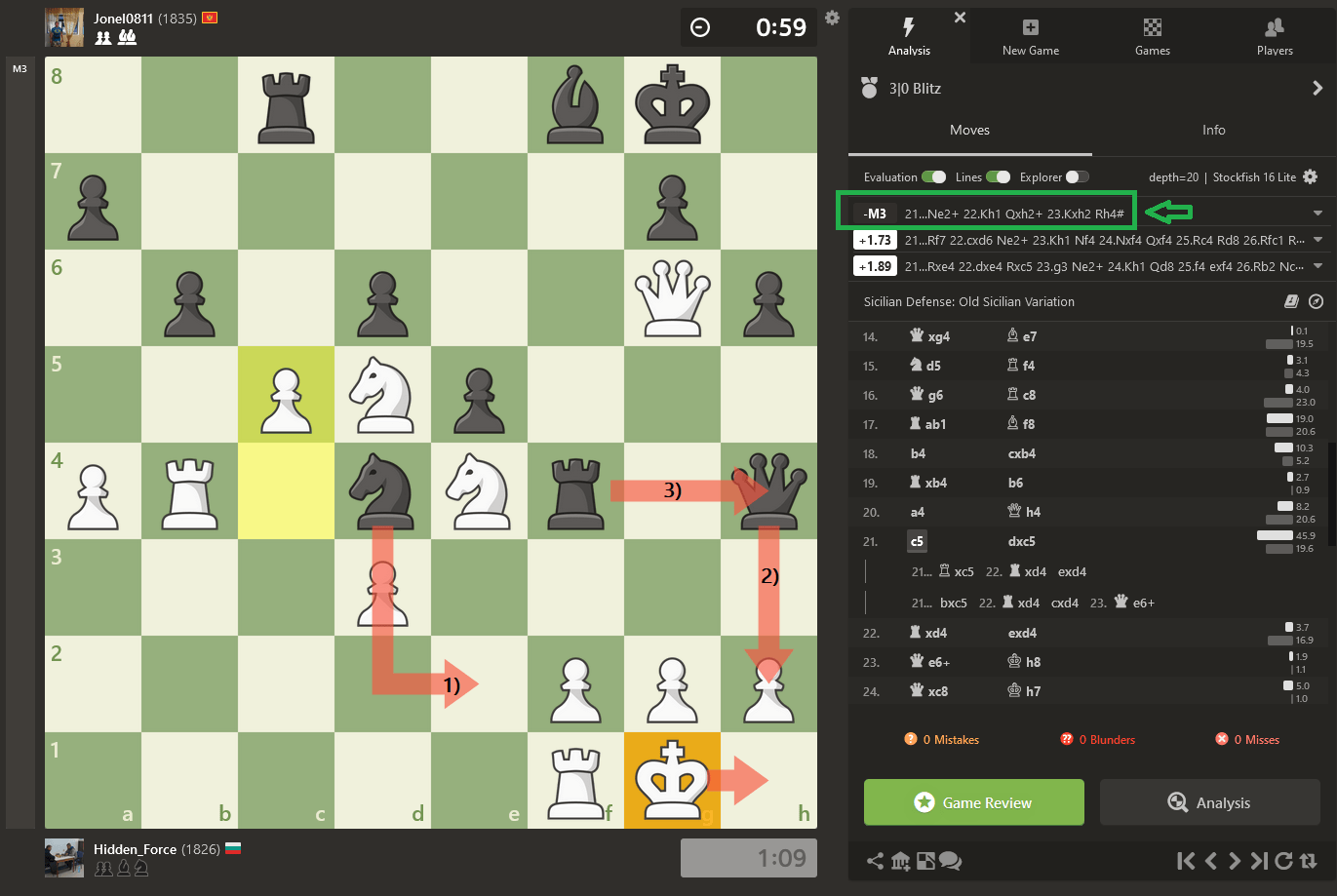
Chess Calculator
Do you want to find out which was the best next chess move in any position from your completed games? Maybe you missed an important defensive idea that would have helped you save the game. Or maybe you didn't see a crushing attack and went for the draw instead of a win. Here is how you can analyze your games with a tool also known as а chess calculator.
- What Is A Chess Calculator?
- How To Analyze A Position With Chess.com’s Analysis?
- See The Next Best Chess Move The Computer Suggests
- Conclusion
What Is A Chess Calculator?
Sometimes, people who are newer to the game use the term chess calculator to refer to chess engine or chess analysis. Computers are so powerful that they can beat every human on the planet without trouble. Even the world champion stands no chance against chess engines.
Not surprisingly, we use computers to analyze a chess position and see what they indicate is the best next chess move.
How to Analyze A Position With Chess.com’s Analysis?
The Chess.com Analysis page is a convenient and easy-to-use tool to analyze games and positions. There, you have different options to set up your desired position. Please note that you can only use computer assistance after the game is over. Players who use any type of assistance during a game are violating fair play rules and will be banned from Chess.com.
Set Up Position

Here, you just need to manually drag and drop pieces and set up any legal position you want.

Once you’ve entered the position you want, you only need to press the big green button “Load," and you'll see a list of the best next chess moves on the top right of your screen.

Load From Library
For this option, you must be logged in to your Chess.com profile and have saved games in your Library to load them.

Whenever you're in a game on Chess.com, you have the option to include it in a Library. You can then easily access your saved games later.
To do this, you can use the button with the Library icon below the moves list when you review your finished games.

Load From Archive

Once you click on it, you will be automatically shown your latest games with an option to sort by username, result, opponent, opponent title, and more.

Load From FEN/PGN(s)
Here, you’ll need to have a FEN or a PGN to upload so you can analyze a game or a position. Here is how to do that:
1. Under the moves list in your completed games, below the arrows, you have a share icon. Click on it.

2. This will open a dialogue box with an option to copy either the FEN or PGN of your game.

3. Once copied, go back to the analysis page, choose the “Load from FEN/PGN(s)” option, and paste it there.
4. Enjoy the analysis from the strongest chess calculator in the world.

See The Next Best Chess Move The Computer Suggests
Now, when the position is set, it’s time for the essential part: going through your completed games and analyzing your moves.
Did you miss a forced win with a beautiful combination? Or did you make a move that you thought was brilliant, only to be disappointed by the mighty engine revealing the sad truth that it was a blunder?
Here is an instructive example. Take a look at the position below:

In this position, during the game, White played the c4-c5 push. White thought that if Black captured their pawn, White could take the knight on d4 and then use their queen to fork the rook and the king, winning a piece.
However, White missed a beautiful resource that Black had in the position to not only avoid losing a piece but also deliver a stunning checkmate and win the game. As you can see, the engine suggests the winning move 1...Ne2+, leading to a forced checkmate.

Below, you can see the line that the computer suggested that would lead to Black's victory:
Analyzing your games and looking at the lines the computer suggests is a great way to improve and learn new chess patterns, like the Anastasia's Mate pattern from the example above.
Conclusion
Now you see how important it is to review your completed games and find out what the computer thinks is the best next move. This is a great training practice for improving your game.
Click the button below and start using the chess calculator feature on our Analysis page and see what chess moves you or your opponent might have missed during your games!






